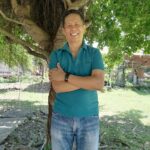Author Archives: Fraternidad Iesus Caritas
Baba Simon, the missionayçry whit baare feet
Saturday June 10, 2023
Baba Simón, the missionary with bare feet
(From “ECHOES OF THE SAVANNAH”)
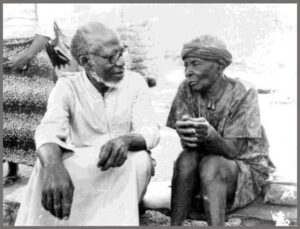 On Saturday May 20, the Pope Francis recognized the heroic virtues of the Cameroonian diocesan priest Fr. Simon Mpeke. Thus he became the first Cameroonian “blessed”.
On Saturday May 20, the Pope Francis recognized the heroic virtues of the Cameroonian diocesan priest Fr. Simon Mpeke. Thus he became the first Cameroonian “blessed”.
Simon Mpeke was born around 1906 in Pongo, a village in the dense jungle of southern Cameroon, into a family of peasants from the Bakoko ethnic group.
His parents were not Christians since the first Catholic missionaries had arrived on the coast of this country only a few years before his birth, in 1895. After finishing his studies at the Catholic missionary school of the Pallottine missionaries of German origin, he asked for baptism. , which he received on August 14, 1918, when he was 12 years old under the name of Simón. He became a teacher and taught for a while.
Until then the priests were all foreign missionaries, German and French and it was thought that Africans could not be. In 1921, when Simón discovered that “a black man could become a priest”, he did not doubt it. He breaks up with the young woman who had been promised to him and begins to study Latin with a small group of friends. In August 1924 they became part of the Yaoundé Minor Seminary, which had opened its doors in July 1923. There he left the memory of an excellent, serious, very pious and peaceful seminarian.
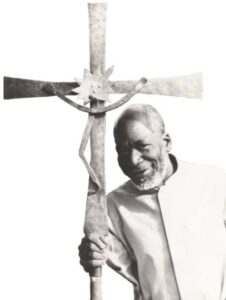 He is part of the group of the first eight Cameroonian priests ordained on December 8, 1935. He worked for twelve years as vicar in a Mission in the middle of the countryside, where he leaves the memory of a very zealous and very spiritual priest, who amazes people. and it is given without limits.
He is part of the group of the first eight Cameroonian priests ordained on December 8, 1935. He worked for twelve years as vicar in a Mission in the middle of the countryside, where he leaves the memory of a very zealous and very spiritual priest, who amazes people. and it is given without limits.
Marked by the theology of his time, he takes a very firm position against the traditional religious practices of the region. Regarded as a priest of great value, he was appointed in 1947 to the great parish of New-Bell, in Douala, where he was appointed parish priest. Simón gives great impetus to the parish, creating groups, supporting the Catholic Action movements and schools and always being available and with great generosity towards his parishioners.
The establishment of the fraternities of the Little Brothers and Little Sisters of Jesus, at the beginning of the 1950s, made him discover the spirituality of Carlos de Foucauld. In 1953 he became part of the secular Institute of the Brothers of Jesus and asked for a sabbatical year to do his “novitiate” in Algeria.
He will be one of the founders at the international level of the Jesus-Caritas Priestly Union and its first person in charge in Cameroon and in Africa.
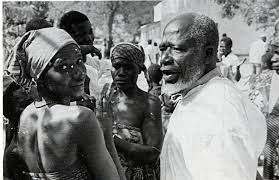 A much loved and influential priest, he was even proposed, along with two others, to the position of assistant to his Bishop. Around 1954 he felt the call to participate in the evangelization of the so-called “pagan” peoples of North Cameroon. After having reflected for a long time, carried away by the missionary dynamism of the Encyclical “Fidei Domun”, he would become in 1959 the first secular Cameroonian missionary priest in his own country.
A much loved and influential priest, he was even proposed, along with two others, to the position of assistant to his Bishop. Around 1954 he felt the call to participate in the evangelization of the so-called “pagan” peoples of North Cameroon. After having reflected for a long time, carried away by the missionary dynamism of the Encyclical “Fidei Domun”, he would become in 1959 the first secular Cameroonian missionary priest in his own country.
After a brief stay in a community of little brothers of Jesus, he settled in Tokombéré, in the current Diocese of Maroua-Mokolo, more than a thousand kilometers from his town.
In previous centuries, hordes of Muslim horsemen of Peul origin, coming from neighboring Nigeria, had forced the clans that had settled since the dawn of time in that fertile plain to move towards the rocky mountains, to protect themselves from their attacks. These people were called kirdi pejoratively by Muslims, which seems to mean kaffir or uncircumcised.
Immediately he began to be called “Baba Simón” (Papa Simón) by the local population. He traveled the mountains tirelessly preaching the Gospel to the inhabitants of this mountainous region. Living in great simplicity he is called the “barefoot missionary”, he will dedicate his life to fight against the misery in which these people live. Affirming, according to a Muslim scholar, that misery is an «enemy of God».
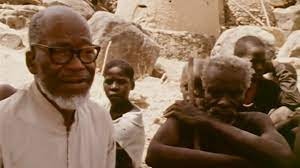 His intense prayer life and his communicative joy make him a luminous witness of God’s love even in the towns furthest from his vast parish. Under his guidance and his example, a fervent Christian community was born. A single passion animated Baba Simon: to give Jesus Christ to the Kirdi and give them instruments to free themselves from all slavery. Baba Simón insisted on the importance of the school. But, after the first failures, he understood that it was necessary to win the confidence of the Kirdi before anything else. From here was born what was called “the school under the tree”.
His intense prayer life and his communicative joy make him a luminous witness of God’s love even in the towns furthest from his vast parish. Under his guidance and his example, a fervent Christian community was born. A single passion animated Baba Simon: to give Jesus Christ to the Kirdi and give them instruments to free themselves from all slavery. Baba Simón insisted on the importance of the school. But, after the first failures, he understood that it was necessary to win the confidence of the Kirdi before anything else. From here was born what was called “the school under the tree”.
Through the school, the health structures, the commitment against injustice, the accompaniment of young people and the call to universal fraternity, it allowed a real promotion of populations underestimated until then. His concern for permanent dialogue with those responsible for traditional religions and the encounter with Muslims has made him a precursor of inter-religious dialogue and has earned him the name by which he is still revered after his death, both by Christians and by not Christians.
A few months before he died, he wrote these notes: “Everything that surrounds me breathes God. The entire universe is a home of life. To stand before God, one does not have to imagine Him anywhere else but in us where He is, in our action where He acts, in our neighbor where He lives.When we die, our body will be buried in the earth of God where it will wither in God and wake up in the Ocean of Eternal Life… To believe is to become aware of the Life… in God”!
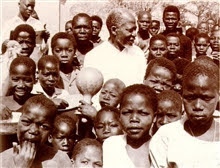 Baba Simón listens, heals and helps. He tries to understand. He, who in his first parish in the South, in 1936, broke the drums of traditional religion, delves into his spiritual vision of men and of God. He sees the suffering of these peoples. Throughout his walks in the mountains and his meetings, everything becomes clear: announcing Jesus means building man, the whole man, through the Good News. These men, considered slaves, listen to Baba Simon tell them that they are children of God, loved by God. And that they are brothers.
Baba Simón listens, heals and helps. He tries to understand. He, who in his first parish in the South, in 1936, broke the drums of traditional religion, delves into his spiritual vision of men and of God. He sees the suffering of these peoples. Throughout his walks in the mountains and his meetings, everything becomes clear: announcing Jesus means building man, the whole man, through the Good News. These men, considered slaves, listen to Baba Simon tell them that they are children of God, loved by God. And that they are brothers.
Over the years, Tokombéré became the site of an unusual pastoral experience of human and spiritual promotion. On August 13, 1975, he died, completely exhausted, at the end of a life entirely consecrated to God and men.
We entrust this region of the Far North of Cameroon, so permanently exposed to the terrorist group Boko Haram, to the intercession of Baba Simon, so that Christians keep their coolness and continue to bear witness to “the Good News of Jesus”.
(Español) Horeb Ekumene nº 344
(Français) La correspondance entre Charles de FOUCAULD et Marie MOITESSIER
(Español) Horeb Ekumene, n°343
(Español) Propuesta de Celebración del primer aniversario de la canonización de San Carlos de Foucauld. José Luís VÁZQUEZ BORAU
(Italiano) Piccoli Fratelli di Jesus Caritas. Maggio 2023
(Español) Desierto, espacio de soledad y silencio. Horeb Ekumene, mayo 2023
Diary of Matthias KEIL, Rome, 13-25 Mai 2022. Canonization Charles de FOUCAULD and international council in Graz
Friday, 13.5 2022
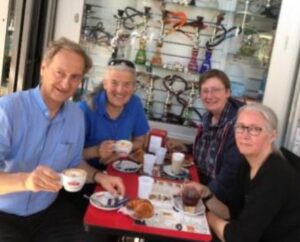 In the morning I arrive in Roma Termini by night train. On the train I met the Little Sisters Marianne and Helene and Daniela, one of their friends. At the station we buy a weekly ticket for the public transport system and have our first Italian caffè and a small breakfast. Then I take tram H across the Trastevere district to the outskirts of the city and after a short walk I find Via della Nocetta 111, the Generalate of the Societá Missione Africane (SMA). The house is close to the large Villa Pamphilii park. Andrea Mandonico, whom I know from the Nazareth Month 2013 in France, made it possible for us, the International Council, to stay in his house. On arrival, he is just at the front door and takes me straight to lunch.
In the morning I arrive in Roma Termini by night train. On the train I met the Little Sisters Marianne and Helene and Daniela, one of their friends. At the station we buy a weekly ticket for the public transport system and have our first Italian caffè and a small breakfast. Then I take tram H across the Trastevere district to the outskirts of the city and after a short walk I find Via della Nocetta 111, the Generalate of the Societá Missione Africane (SMA). The house is close to the large Villa Pamphilii park. Andrea Mandonico, whom I know from the Nazareth Month 2013 in France, made it possible for us, the International Council, to stay in his house. On arrival, he is just at the front door and takes me straight to lunch.
Read the full document in PDF: Diary of Matthias KEIL. Rome, 13-25 Mai 2022
Letter of Eric, 15 May 2023
(In celebration of the first anniversary of the canonization of Brother Charles de Foucauld)
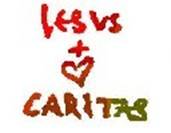 “He (Brother Charles) understood that God wanted him to be satisfied with clearing a path so that others could plant better. But he was thinking only in terms of announcing the Gospel to the people of the Sahara. He had no idea God was working through him to prepare a gift for the entire Church.” (Archbishop of Marseilles, France, preaching about Brother Charles leading to his canonization)
“He (Brother Charles) understood that God wanted him to be satisfied with clearing a path so that others could plant better. But he was thinking only in terms of announcing the Gospel to the people of the Sahara. He had no idea God was working through him to prepare a gift for the entire Church.” (Archbishop of Marseilles, France, preaching about Brother Charles leading to his canonization)
Dear Brothers,
Warm fraternal greetings to you all!!!
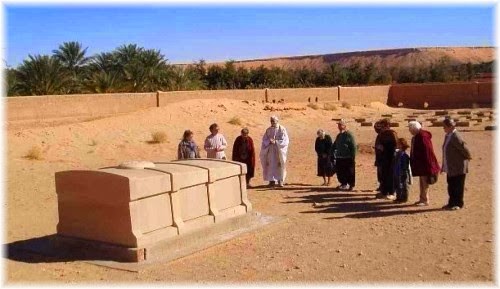 How is everything with you at the moment? What are significant experiences of joy, growth, transformation in your personal life, your friendships with brother-priests in your diocese, in your ministry to those in the peripheries? What are spaces of discouragement, stagnation and struggle? How are you coping? To whom do you go for support? Where are you being led by the Spirit in your resolve to be a joyful missionary of the Risen Christ? How are you growing in the discipline of daily adoration, review of life, desert day, gospel meditation, attending monthly meeting? How do these spiritual practices strengthen your commitment to a call within a call to be a universal brother, gentle presence, contemplative companion, prophetic preacher, missionary disciple of Jesus of Nazareth in the footsteps of Brother Charles?
How is everything with you at the moment? What are significant experiences of joy, growth, transformation in your personal life, your friendships with brother-priests in your diocese, in your ministry to those in the peripheries? What are spaces of discouragement, stagnation and struggle? How are you coping? To whom do you go for support? Where are you being led by the Spirit in your resolve to be a joyful missionary of the Risen Christ? How are you growing in the discipline of daily adoration, review of life, desert day, gospel meditation, attending monthly meeting? How do these spiritual practices strengthen your commitment to a call within a call to be a universal brother, gentle presence, contemplative companion, prophetic preacher, missionary disciple of Jesus of Nazareth in the footsteps of Brother Charles?
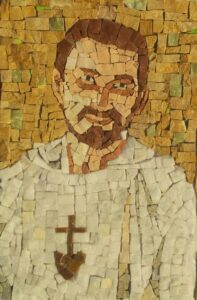 I humbly pose these questions with you. Questions are like compass for the soul seeking the True and the Good amidst the complex, diverse, confusing paths of our world. I honestly struggle with you these questions. Precisely, in this tension, the grace of God works unconditionally to mellow our hearts. The key is to hold the question long enough until it strips us naked of all that is not true and not good in us. AA people have this to tell us – keep coming back to the practice. We are not “super” human beings who always live from our ideal. No, we are wounded, weak pastors who, very often live from our frailties and inadequacies yet we are so dearly loved and are called to love like the Master.
I humbly pose these questions with you. Questions are like compass for the soul seeking the True and the Good amidst the complex, diverse, confusing paths of our world. I honestly struggle with you these questions. Precisely, in this tension, the grace of God works unconditionally to mellow our hearts. The key is to hold the question long enough until it strips us naked of all that is not true and not good in us. AA people have this to tell us – keep coming back to the practice. We are not “super” human beings who always live from our ideal. No, we are wounded, weak pastors who, very often live from our frailties and inadequacies yet we are so dearly loved and are called to love like the Master.
Brothers, I have the occasion to write to you as we celebrate the first anniversary of the canonization of Brother Charles. I was a witness to the joy and jubilation last year at St Peter’s Square in Rome. It was a Kairos moment not only for us but more so, for the universal church. When his name was announced at the beginning of the Eucharist, joyful cheers and loud claps of affirmation and gratitude to God were heard from the people. Now, the same euphoric joy is lived out in the chronos of concrete, little yet decisive acts of prophetic witness in the peripheries, inspired by the contemporary message of Brother Charles. The call of the synod on synodality invites us to participate in a universal journey as fellow pilgrims (not tourists), brothers and sisters all, walking side by side each other, collaborating, discerning and listening to one another where the Spirit is leading our world today.
In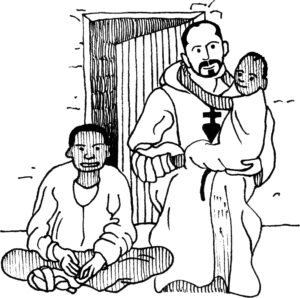 the course of our preparation last year, we from the International Team have asked with you – how has the canonization made an impact on you? Now, one year after, we ask with you something more specific – now that Brother Charles has been recognized as a gift to the church, what is ours to do to share this gift to others who are lost, lukewarm, curious, sympathizers but wanting to deepen their spirituality. Like the mandate of the apostles after the Resurrection to spread the news that He is alive, we have been called from being too inward-looking to be more out-going, to tread on unfamiliar territories, starting from simple personal encounter in the tomb of our losses, on the disappointing road of our Emmaus or in the breaking of bread with the poor and the marginalized. It was the Spirit of the Risen Christ that fired them up to be courageous, tireless, and joy-filled missionaries. How about us? What is our story? How have we been fired up in our mission to pass on the gift? How could we initiate personal encounters with brother priests of our diocese to brothers beyond our diocese or country? How do we do mission with the other branches of the Spiritual Family in the spirit of fraternal collaboration and co-responsibility for the gift?
the course of our preparation last year, we from the International Team have asked with you – how has the canonization made an impact on you? Now, one year after, we ask with you something more specific – now that Brother Charles has been recognized as a gift to the church, what is ours to do to share this gift to others who are lost, lukewarm, curious, sympathizers but wanting to deepen their spirituality. Like the mandate of the apostles after the Resurrection to spread the news that He is alive, we have been called from being too inward-looking to be more out-going, to tread on unfamiliar territories, starting from simple personal encounter in the tomb of our losses, on the disappointing road of our Emmaus or in the breaking of bread with the poor and the marginalized. It was the Spirit of the Risen Christ that fired them up to be courageous, tireless, and joy-filled missionaries. How about us? What is our story? How have we been fired up in our mission to pass on the gift? How could we initiate personal encounters with brother priests of our diocese to brothers beyond our diocese or country? How do we do mission with the other branches of the Spiritual Family in the spirit of fraternal collaboration and co-responsibility for the gift?
In the Philippines, we have organized ourselves with the other members of the Spiritual Family and are committed to be fellow pilgrims, recognizing our unique gifts yet called to witness unity, social friendships, fraternal sharing, co-responsibility in the life-long journey of missionary discipleship and fidelity to the charism of Brother Charles.
How about you and your local fraternity, the national and continental fraternities? Where are you being led by the Spirit? What is yours to do? We could not just sit down and operate behind our little world without a concern for the bigger reality of God’s Kingdom here and now.
May the coming of the Spirit like tongues of fire set our hearts aflame as we take on the task of doing mission like our very own, Brother Charles. Though things were not always clear to him where to go and what to do, he never stopped in ambivalence and half-heartedness. Rather, his passion to imitate the love of God in Jesus of Nazareth so consumed him that he tirelessly wrestled with every human condition that separates us from God, from the poor and from one another. St Charles de Foucauld, pray for us!!




